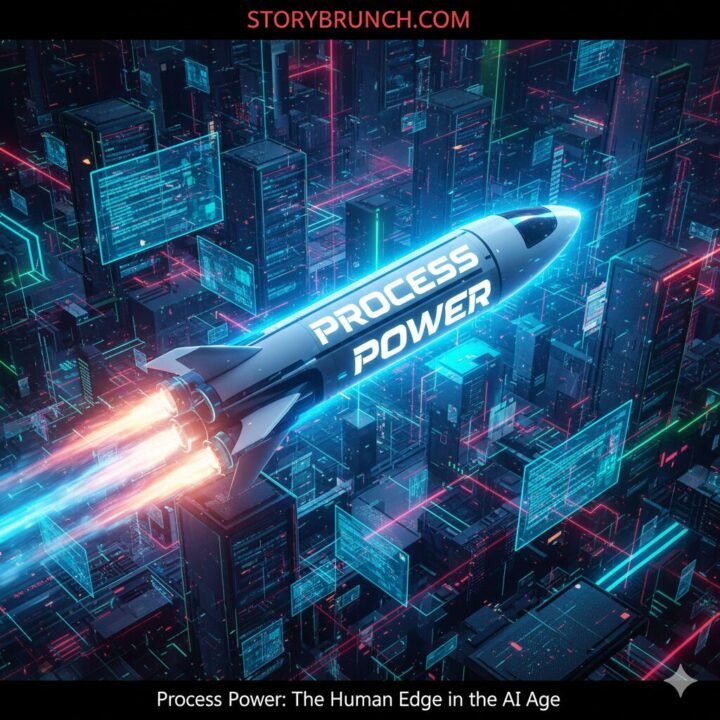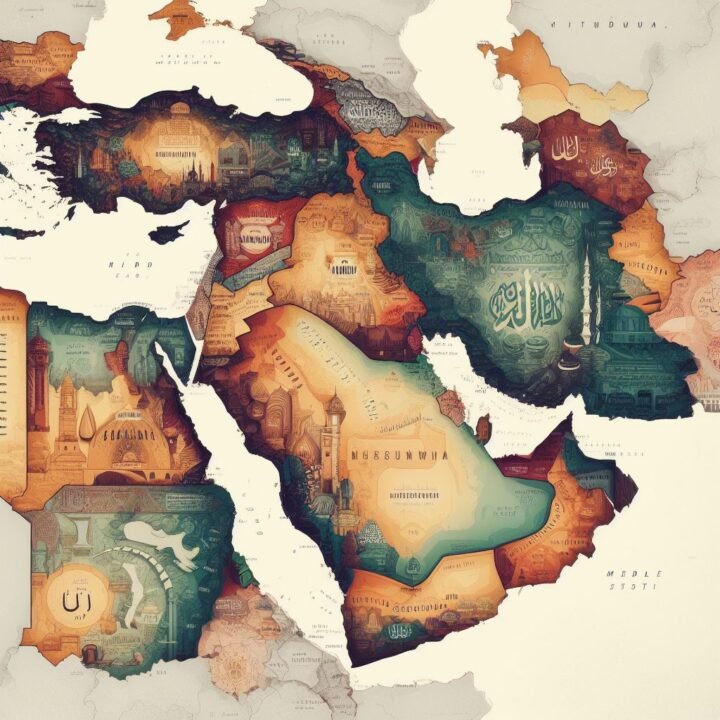Steve Jobs famously said, “Technology alone is not enough—it’s technology married with liberal arts, married with the humanities, that yields us the results that make our hearts sing.” His process power was in merging aesthetic sensibility with engineering brilliance.
Introduction
Artificial Intelligence has radically changed the way people create, work, and learn. Writing a polished article, coding a mobile app, or designing graphics once required years of expertise. Today, with tools like ChatGPT, Copilot, and Midjourney, anyone can accomplish these tasks at a competent level. This is the great equalizer—AI has lifted the global average of skill.
But here’s the catch: when everyone can do something reasonably well, competence is no longer enough. The question becomes—what separates those who simply use AI from those who build something extraordinary? The answer lies in a quality that machines cannot replicate: process power.
What is Process Power?
The term “process power” originally comes from the business world. Companies that master a complex, opaque process—one that’s hard to copy and critical to value creation—gain an enduring edge. Toyota is the classic example. It didn’t beat American carmakers by inventing a brand-new engine, but by making a thousand small improvements to manufacturing. The Toyota Production System was so intricate that rivals spent decades trying to match it.
The same principle applies to creative fields. Every successful filmmaker, musician, or content creator has their own process: the information they consume, the way they brainstorm, the steps they take to refine and polish. These processes are so nuanced that no outsider—even with huge budgets—can simply replicate them overnight. That is process power.
Now extend this idea to individuals in the age of AI. If tools have democratized basic skills, what sets you apart is the sophistication of your process—your unique way of learning, connecting, and creating that can’t be copied with a prompt.
Why Process Power Matters in the AI Age
AI can generate words, images, and code, but it cannot create enduring processes. It gives outputs, not systems of thought. Humans who develop process power gain a lasting edge, because their methods—built from experience, reflection, and iteration—are opaque, complex, and hard to imitate.
Consider the movie industry. Even if someone handed you $100 million and cutting-edge AI tools, your chances of producing a blockbuster are low unless you involve people who understand the filmmaking process—script refinement, casting, production design, editing, marketing. The true power lies in the process, not the input tools.
This is why process power is becoming the new cultural capital. AI has raised the floor, but it has also made the ceiling dependent on who can craft processes that others cannot replicate.
The Pillars of Individual Process Power
Deep Knowledge
AI can summarize textbooks, but it cannot substitute mastery. True process power rests on fundamentals. Just as Toyota’s system required engineers who deeply understood mechanics and workflow, individuals need solid foundations. In chess, for instance, everyone uses engines, but champions like Magnus Carlsen win because they combine engine suggestions with years of deep positional intuition.
Interdisciplinary Thinking
Innovation happens at intersections. Elon Musk’s ventures thrive not because of AI tools, but because he connects physics, design, economics, and systems thinking into a process that others find hard to copy. This complexity itself becomes his moat.
Contextual Awareness
Processes work differently depending on culture and context. J.K. Rowling’s Harry Potter succeeded not just because of fantasy tropes, but because her process wove personal struggles, mythology, and the social context of adolescence into a seamless narrative. AI can generate stories, but it cannot embed them with lived meaning.
Critical Reflection
AI often gives “first-draft answers.” Process power means questioning, improving, and filtering outputs. Paulo Freire called this “critical consciousness”—the ability to interrogate assumptions. This reflection, done repeatedly, becomes a complex habit that is difficult for others to mimic.
Iterative Adaptability
Toyota succeeded by layering small improvements over decades. The same is true for individuals. Netflix evolved from DVD rentals to streaming to producing shows, refining its process each step. Process power thrives on continuous adaptation—AI can provide tools, but not the long-term evolution of vision.
How to Build Process Power in Everyday Life
Building process power is not about shortcuts—it’s about cultivating habits that, over time, become too complex for others to copy.
Read Deeply, Not Just Widely: Go beyond AI summaries and study foundational texts. Mastery begins where superficial overviews end.
Prototype and Refine: Don’t stop at first drafts. Rework, polish, and experiment until your method becomes uniquely yours.
Connect the Dots: Build bridges across fields. Steve Jobs turned a college calligraphy course into Apple’s design revolution. That’s process power—finding unlikely inputs and making them central.
Document and Reflect: Keep journals, frameworks, or playbooks for how you approach problems. Over time, these notes become your personal “Toyota Production System.”
Use AI as an Apprentice, Not a Master: Treat AI as scaffolding that accelerates your process, not as a replacement for it. The real edge lies in how you shape and refine what AI provides.
Process Power in Action: Stories of Success
The Toyota Way
Toyota didn’t win because it had more capital—it won because it refined a process that was invisible to outsiders. By layering thousands of small process improvements, it created cars that were cheaper, more reliable, and longer-lasting. Competitors could see the results but not easily copy the system.
Pixar’s Creative Process
Every Pixar film is the product of a unique process: “Braintrust” meetings, repeated storyboarding, endless testing of emotional beats. This process is so complex that even with the same technology, most studios cannot reproduce Pixar’s consistent magic.
Netflix’s Iterative Edge
From DVD rentals to streaming to original shows, Netflix’s journey is a lesson in adaptability. At each stage, its process of data-driven experimentation, risk-taking, and storytelling refinement became more intricate. That process—not just technology—gave it an unbeatable edge.
The Independent Creator
Top YouTubers and podcasters often seem like overnight successes. But behind the scenes, they build ecosystems: how they consume information, prototype ideas, edit, and market. These processes are so personal and nuanced that no amount of AI replication can replace them.
Why This Matters for You
In the AI age, everyone can write code or articles. But not everyone can design a personal Toyota Production System for their craft. Your process is your moat. The more complex, adaptive, and refined it becomes, the harder it is for others to copy.
In writing, process power means developing a style and workflow that AI cannot replicate. In coding, it means building not just snippets but architectures that reflect deep knowledge. In business, it means layering small improvements that compound into dominance. And in creative industries, it means refining a personal process until it becomes opaque to outsiders.
Process Power as the Future’s Cultural Capital
Pierre Bourdieu once described cultural capital as the knowledge and skills that give people an edge in society. In the 21st century, cultural capital is shifting. The new advantage is not simply having access to AI tools, but in developing a process that others cannot copy.
Herbert Simon famously said, “A wealth of information creates a poverty of attention.”
Process power is the discipline of attention—applied consistently, layered over time, until it becomes invisible to outsiders yet impossible to beat.
Conclusion: Building Your Own Toyota
AI has leveled the playing field, raising the baseline of skill. But in doing so, it has made process power—the ability to build, refine, and own complex systems of thought and creation—the true differentiator. Whether you are a writer, entrepreneur, coder, or policymaker, your process is your competitive edge.
Toyota showed the world that a thousand tiny improvements can create an unshakable moat. The same holds true for individuals. Build your process, refine it endlessly, and let it become your invisible engine.
That’s the human edge AI cannot replace.










